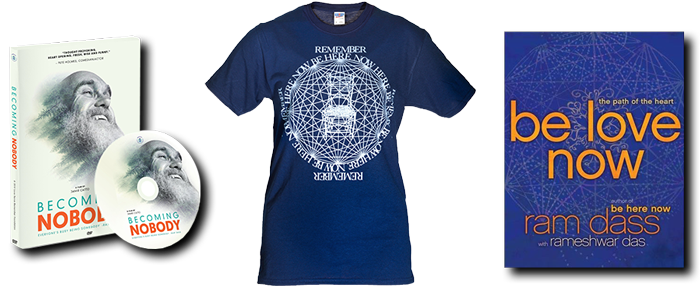Winter Camp
As I have said before, when I first met Babaji I was not at all interested in sadhus or saints. It was out of sheer grace that he visited our house. Although many unusual things were happening, we failed to realize their importance or to see his hand in them. His visits meant some thrill and excitement and we looked forward to them, but I still looked at him as a kind and affectionate guest. A new process started, however, when we moved onto the larger stage of the new house. Many miracles occurred, acting as shock treatments on me. But no less important was the association with some of his oldest and most trusted devotees, whose love and devotion for Babaji were really my eye opener.
The devotees who started coming to our house when it was built included Siddhi Didi and her husband, Tularam Dada, Hubbaji (Hira Lai Shah), and Umadatt Sukla. They were the earlier ones. We had already met Kehar Singh. Then came Mr. Sang, Inder, Thakur Jaidev Singh, and later Kishan Tewari, Jiban, Ram Narayan Singh, and Gurudat Sharma. When these persons started coming, we were unknown to each other. We were in different stations of life, with different professions and interests, but we were like different streams which come together, reach the ocean and become one.
The devotees would be in our house, not bothered by physical comforts or conveniences, but only interested in being close to Babaji, seeing him and hearing him. This did not mean that we were always trying to hang onto him. He might be in one room and we would be in another, talking about him. Whenever an opportunity came, we would sit together and compare notes—what everyone felt about him or whatever new experience anyone had attained.
After eleven o’clock at night we would be free. We would have finished our food and the whole floor would be covered with beds. Sometimes Maharajji would come out and take his seat on a bed. He would ask, “Are you having tea?” We would say no. “Why are you sitting here with no tea?” Then he would see the blankets on Sukla’s bed, and start counting how many were there. “You have got so many layers on your bed!”
Then Sukla would say, with tears in his eyes, “Baba, this is my Didi’s house, and she has given them to me.”
“Oh, your Didi is very generous to you, she gives you so much. But come and look at my bed and see how hard it is!” This was his way of talking. It used to be the most enjoyable time of the whole day—like the members of a family sitting around the loving and indulgent elder, talking and chatting freely, without any restrictions.
As far as these devotees were concerned, they had been with Babaji a long time and all their doubts, all their questions, had been completely answered. They were convinced and intoxicated. But I would not be intoxicated so soon. I was hearing them talking of Babaji as a saint and as God, but still I could not accept it in my heart of hearts. I would only say, “Yes, of course, it must be so,” but I was not believing that. He could not convince and convert me easily. I did not fall headlong like your Kishan Tewari or your Jiban Baba, saying that he is all in all, the divinity incarnate.
In January 1960, the Ardha Mela was taking place in Allahabad. The celebration spread over two months. Hundreds of thousands of sadhus came and set up camp in the area of the confluence of the Ganges and Jamuna Rivers. Babaji had arrived in the beginning of December. Some devotees, including Tularam Dada and Siddhi Didi came in December, but many more arrived in January.
One day in January he went out in the afternoon and got into a car, along with Tularam, Sukla, and a few more of us. We did not know where we were going. We crossed the bridge on the Ganges and reached the ashram of Prabhudatt Brahmachari, a celebrated saint. Babaji got down and I followed him; he asked the others to stay in the car.
Seeing Baba, Brahmachari came rushing over. “Baba, you are so kind to me. You have come!” He took Baba around and introduced him to many sadhus. Then he sat Baba down and brought various kinds of prasad from Vrindaban and Mathura and offered them to Babaji, who accepted them. “Baba, the Ras Lila party from Vrindaban has come, please do stay the night and enjoy the celebration.” Baba readily agreed, but Prabhudattji, who knew Babaji well, said, “Baba, I cannot accept your words so easily.” When he had to leave for a few minutes to take care of something, he asked the people in the room not to allow Babaji to go. He warned them, “Be vigilant. He escapes very easily.” I did not understand fully what he meant.
Babaji sat talking to the people for some time and then told me that we would go out to urinate. I stood up with him. He told the people he knew where to go. Then he caught hold of my hand and began moving fast. Coming near the gate he asked me to run and get the car started.
When Baba got into it, Prabhudattji noticed and cried out, “He is running away, run after him!” The car started and we drove away.
It was a full moon night and the moonlight was reflected in the Ganges. The motor road was completely empty at the time and we stopped the car, got out and sat there. Babaji was sitting on the road with us around him. He said, “Look at this Ganga, this is not water, but milk. This is pure amrit [nectar].” None of us could actually believe that. After all, the saints and sages talk like that, a language we do not understand. The understanding was to come only after six years.
Babaji had a camp at the Kumbha Mela in 1966, feeding thousands of people every day. He stayed at our house and in the afternoon, after taking his food, would go to the camp. Many devotees were staying there.
One day in the afternoon, Babaji, Sukla, a sadhu named Omkar Baba, and I went to the mela and came to the bank of the Ganges near the sangam. There was a very big barge which was empty except for the boatman’s wife, who was preparing food. Babaji got in the boat and I spread the blanket we had brought for him. Sukla had a lota and Baba told him to fill it with water and keep it there. We sat for some time until it was getting dark and Babaji said, “Chalo! When you people sit somewhere you forget everything. It is getting late, let us return.”
I took up the blanket and Sukla took his lota. We got down from the boat and Maharajji, pointing at the lota, told Sukla to offer us a drink. When we looked in the lota we saw that it was fresh milk! Sukla wanted to bring some of the milk home for Didi and the others, but Maharajji said, “No! Throw it away! You want to bring disgrace to me? Throw it!” Then he had Sukla wash the lota out. I then remembered the 1960 mela when Babaji had said, “This Ganga is not water, it is milk.”
– Excerpt from By His Grace: A Devotee’s Story by Dada Mukerjee
The Man With the Flute
Once Maharajji had gone from Allahabad to Jagganath Puri with some of the devotees. I could not go because I had to run the household. At about four o’clock one afternoon I was relaxing, my mother and auntie were resting in their room, when I heard some noise from behind the house. Some children were shouting, “Baba, Baba, let us have the flute!”
A man’s voice came, saying, “I am hungry, give me some food.”
I looked out and saw that many children were surrounding a tall fellow with long hair, wearing a long coat. He had a brass flute in his hand. Seeing me, he said, “I am hungry.”
He came and sat just before the door and I went to get some chapatis and dal. I brought them and said, “These are not fresh, they were cooked at noon, but eat them and after that you can have some sweets.”
He would not lift his head, just looked down and said, “Araharki dal, araharki dal. I have not eaten araharki dal for so many years.”
I remembered that Maharajji had brought some sweets from Vrindaban, saying, “This is Biharaji [Krishna] prasad.” I brought some to the man. When he had finished and was getting up, I said, “Wash your mouth, wash your mouth,” as there was dal on his beard. But he would not, and when I insisted he only washed his flute. When he was leaving I said, “Baba, you can come whenever you like. If I am not at home, my mother and auntie will welcome you.”
He said, “I have been searching long for the house where bhakti [devotion] and Lakshmi live.”
During all this, Ashoka had been standing nearby. Just like a statue. Later she related that while recently in Delhi, she and a friend had gone out in a car with Maharajji. They had stopped at the house of a very wealthy man and Maharajji had gone inside, telling them to wait at the gate. While they were waiting, a man came who looked exactly like this man, except instead of a flute he carried a big stick. He said he was very hungry and asked for food, but the gatekeeper would not let him in. He said, “I have come to the house of the richest man in the city and I must return disappointed.”
Two days after that, Maharajji returned. He said to me, “Biharaji gave you darshan.” When the story was narrated, Jivanti Ma asked me, “Dada, on what day did that person come who ate the araharki dal?” I said it was Thursday. Then she said, “We were in Jagganath Puri then and Maharajji had already taken his food. Suddenly at about four o’clock he said, ‘I shall eat chapati and araharki dal.’ He does not eat araharki dal, you know that, he always eats mung dal. So we were rather surprised. Didi said, ‘This is not the time for your food, you have eaten already. Besides, you do not eat araharki dal.’ But Babaji kept saying, ‘I am hungry and you do not give me food.’ So we had to go and get araharki dal to cook for him. That was the same time you were feeding araharki dal to that man with the flute in Allahabad.”
– Excerpt from By His Grace: A Devotee’s Story by Dada Mukerjee








Jai Baba Neeb Karauri Maharaj Ji.🙏🏼
Jai Maharaj Ji.🙏🏼
We are one.
Live Life & Love All is a message I carry from Neem Karoli Baba.
Hail Maharaj- Ji.
Koti koti namaan Maharaj- Ji
Maharaj-Ji ki jai ho
I am going to meet him soon.
How? Please tell me. It is my heart’s deepest desire to connect with him.
All you need to do is talk to him. It can be through his photo or even picturing him in your heart. He will listen to you, I promise 🙂